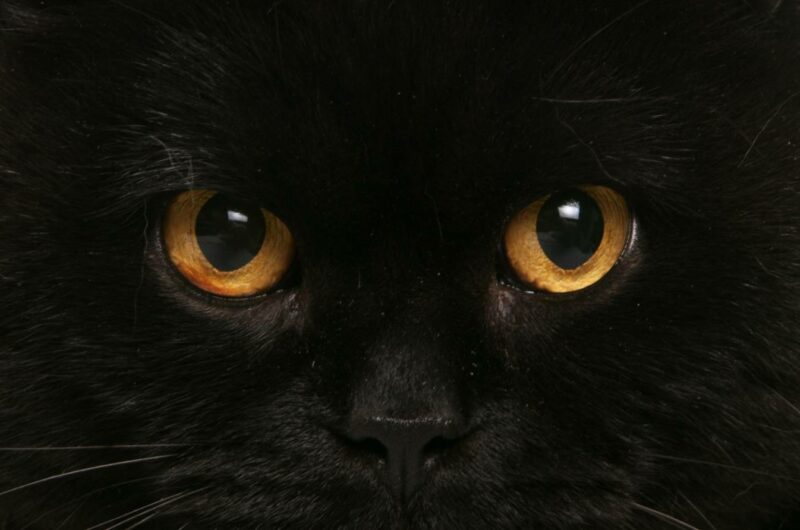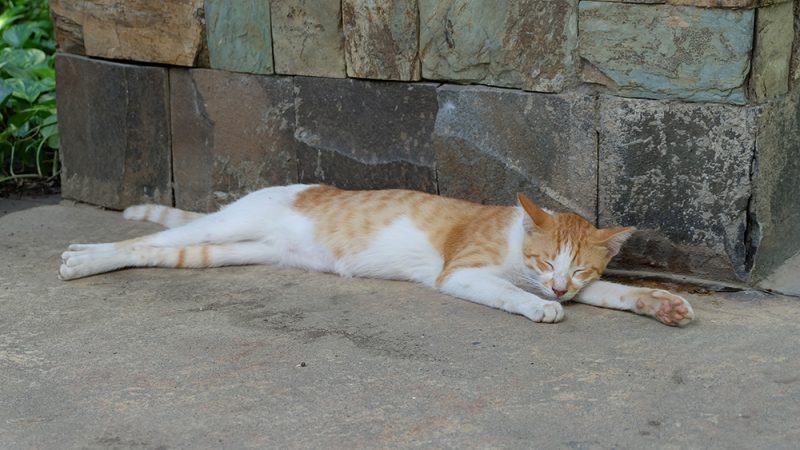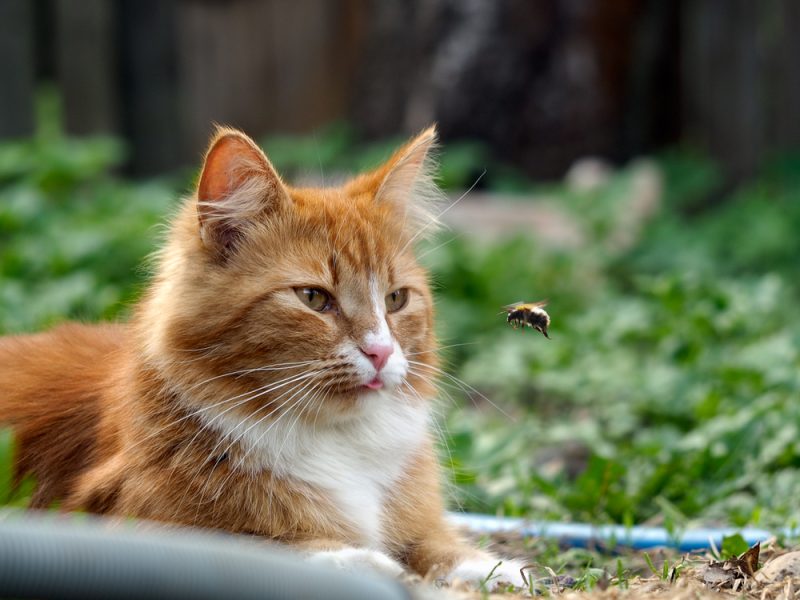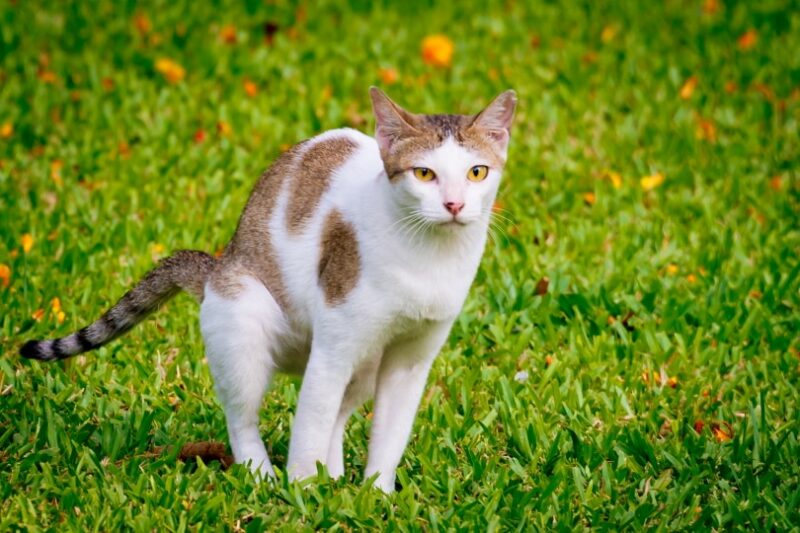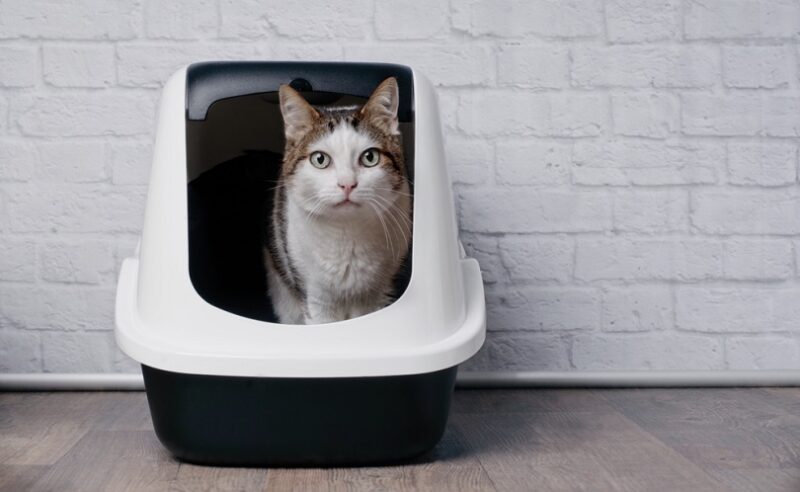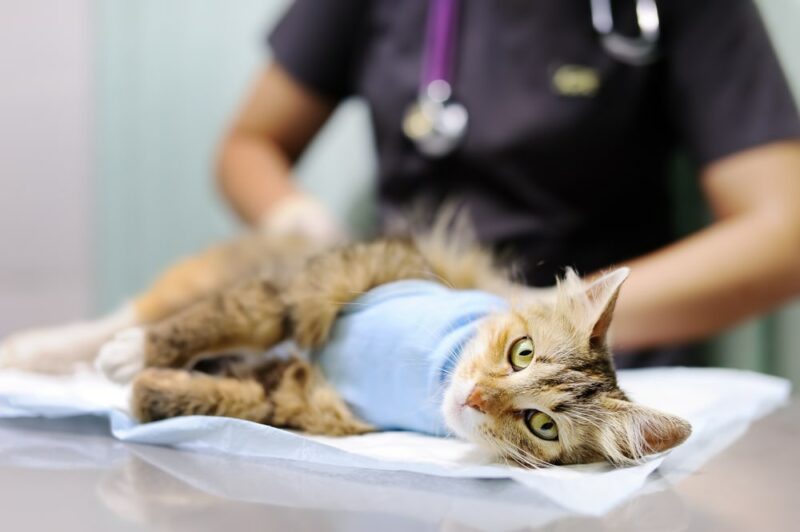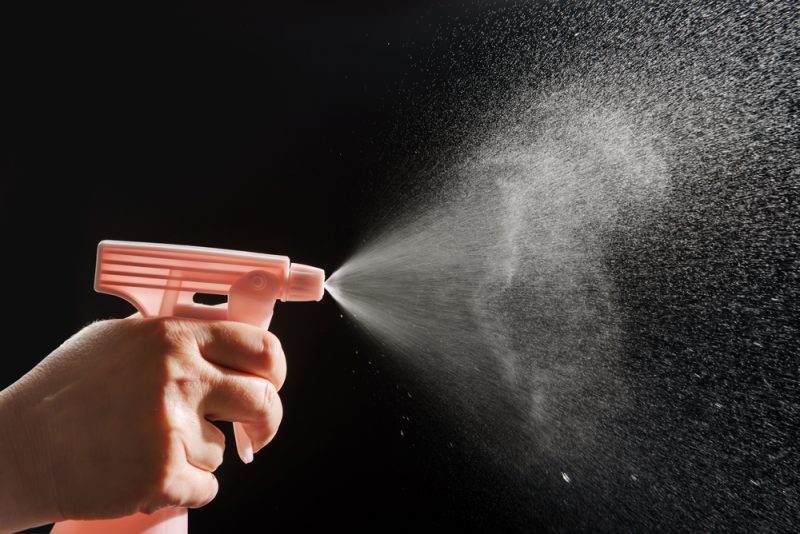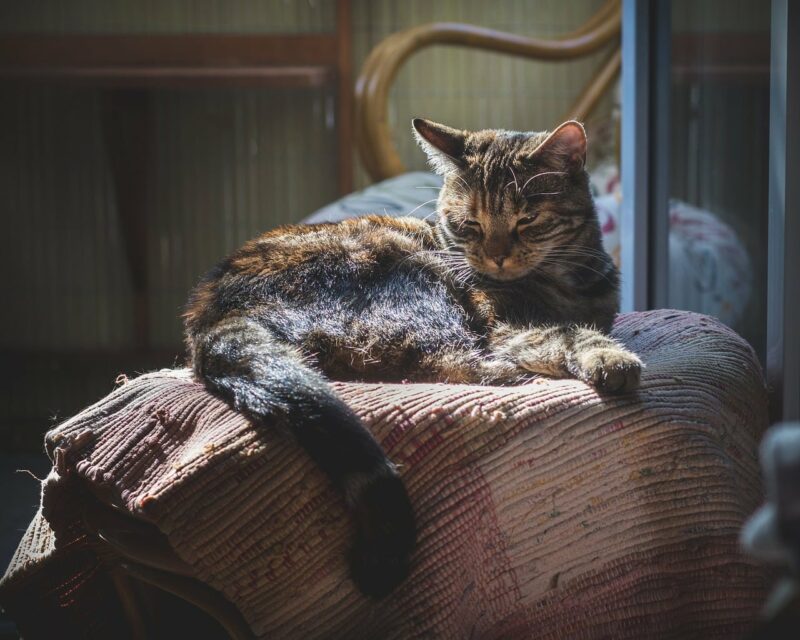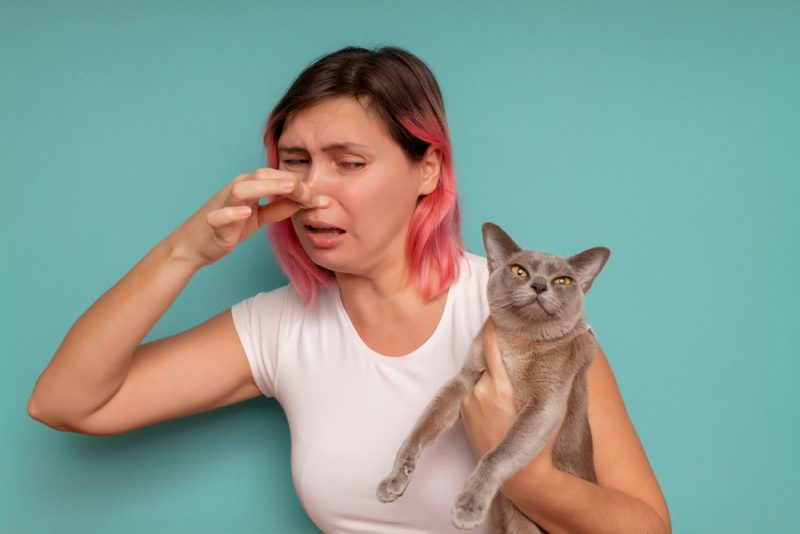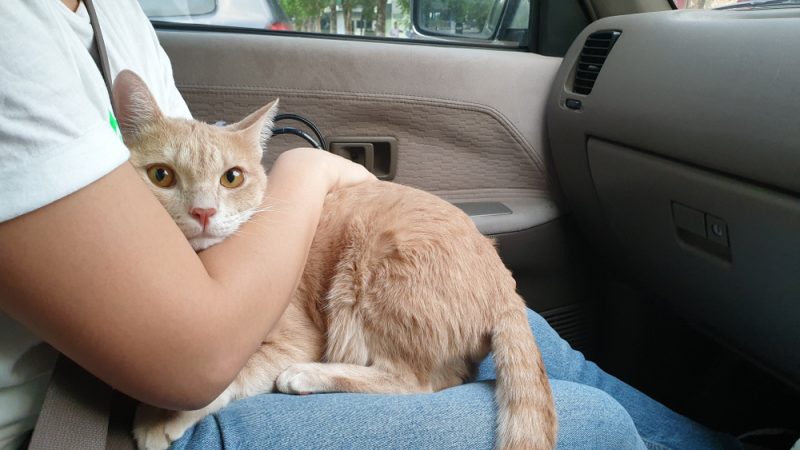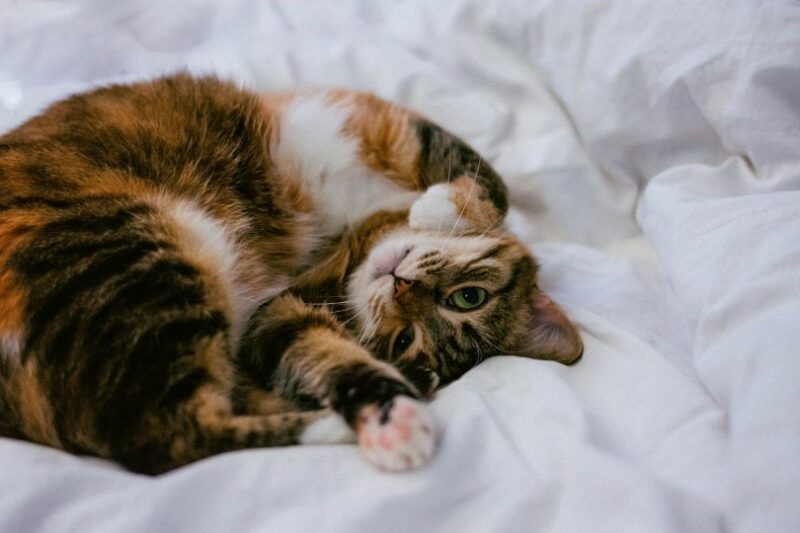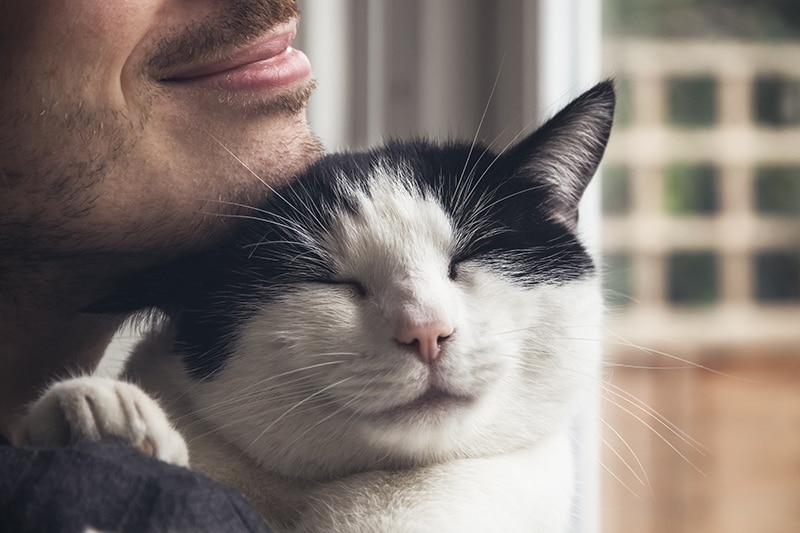In this article
It’s not uncommon for cats to act weird when you scratch the base of their tail. This area is quite sensitive, and cats respond one way or another. Additionally, a tail that sticks straight upright into the air is referred to as the “tail up” position. This is a signal that is displayed during friendly interactions. While there isn’t a single definitive explanation for this quirky reaction, several theories shed light on why cats behave this way.

The 10 Common Reasons Why Cats Act Weird When Scratching the Base of Their Tail
1. They Feel Threatened
One theory is that the tail-up response is a defensive reaction. When a cat feels threatened, their instinct is to protect themselves. By arching their back and raising their tail, they are making themselves appear larger and more intimidating to whatever is causing them to feel threatened. A bristled, puffed-out tail held upright is what signals fear or aggression.
2. They Love You
Another theory is that the tail-up response is a sign of affection. When you scratch a cat in just the right spot, it can be incredibly pleasurable for them. Much like humans, cats enjoy being touched in a way that feels good, and the base of the tail is a particularly sensitive spot for many cats. As a result, when you scratch them there, they may respond by raising their tail as a way of showing their enjoyment. This behavior is often accompanied by relaxed body language, purring, and kneading, all of which indicate affection.
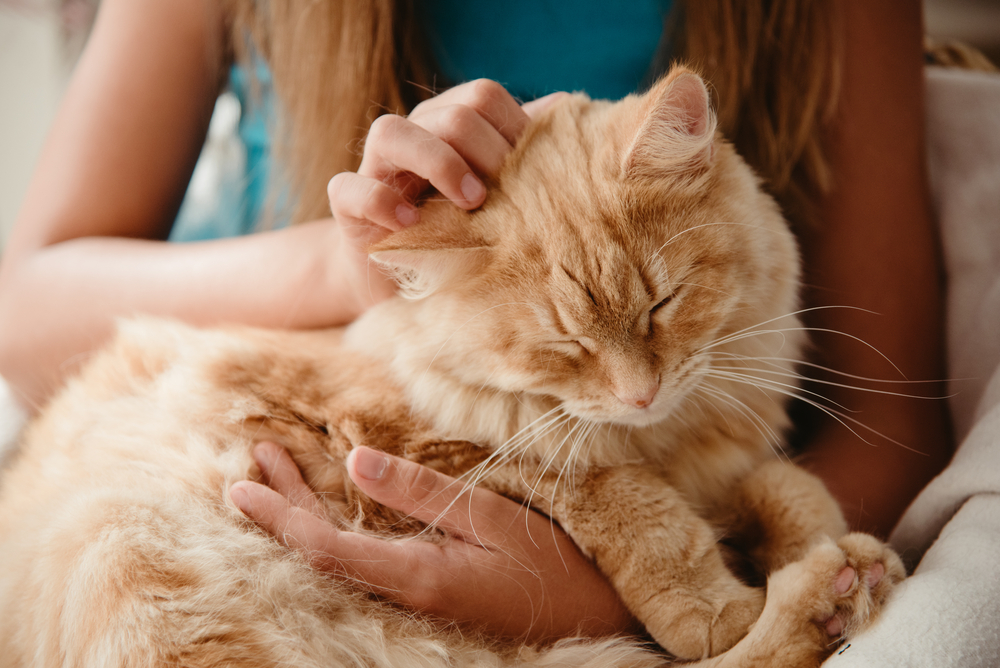
3. They’re Experiencing Involuntary Reflexes
The most common reason for your cat to act weird when you scratch their lower back is that this area contains many nerve endings, so light touch can trigger reflexive movements. Just like humans, some cats have sensitive areas that can produce an involuntary reaction when touched. So, if your cat starts squirming or kicking their legs when you scratch them there, it’s likely you hit that exact spot.
4. They’re Communicating
Another possibility is that your cat is trying to tell you something. Cats communicate through body language and scratching the base of their tail may be a way of telling you that they’re uncomfortable or in pain. If you notice your cat doing this along with other signs of distress, such as meowing loudly or hiding, it’s best to get advice from a vet to rule out any medical reasons for their behavior. Conditions such as flea allergy, skin infection, or arthritis in the lumbosacral region can make this area especially sensitive.
If you need to speak with a vet but can't get to one, head over to PangoVet. It's an online service where you can talk to a vet online and get the advice you need for your pet — all at an affordable price!

5. They’re Happy
Some cats simply enjoy the sensation of being scratched in that spot. Cats have a lot of nerve endings in their tails, so scratching or rubbing this area can feel good to them. If it feels good to them, they may start purring or leaning into your hand to signal that they’re enjoying it. It’s like a good massage! Use this time to feel for any lumps, bumps, cuts, bruises, and body changes.
That’s incredibly useful information to have as a pet owner! You can even keep a log if you want to track body condition over the years.
6. They’re in Heat
If your female cat is acting weird when you scratch the base of her tail, it could be because she’s in heat. Cats in heat are usually easy to recognize because they will behave quite differently. They may roll on the floor, “call” loudly, spray, roam, and they may become more affectionate or even aggressive. If you think your cat is in heat, it’s best to take her to the vet to confirm and get guidance on how to proceed. They’ll likely recommend you spay your cat to prevent any unwanted pregnancies. During estrus, touching the lower back often elicits the lordosis posture. She will raise her hindquarters and move her tail to one side; this is a mating-related response.
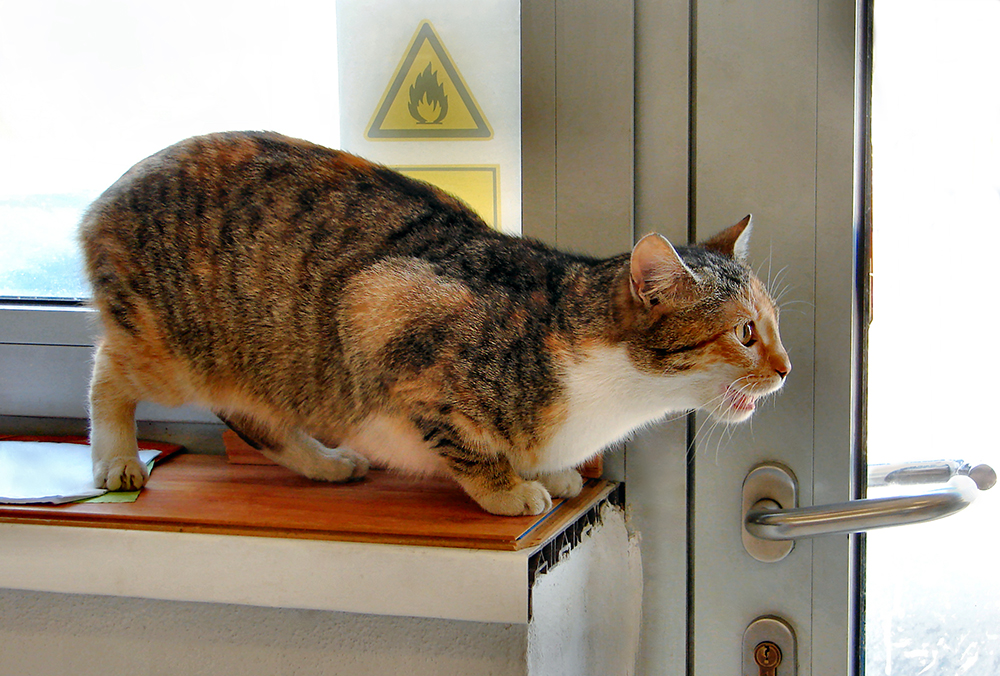
7. They’re Overstimulated
Scratching the base of your cat’s tail can also lead to overstimulation. Cats are very sensitive creatures, and too much stimulation in one area can make them feel uncomfortable. If you notice your cat getting agitated or start swatting at you when you scratch their lower back, it’s best to stop and give them a break. Overstimulation can occur quickly, especially in cats that enjoy petting but have a lower tolerance for touch.
8. They’re Marking You as Theirs
Another possibility is that your cat is marking you as their territory. When cats rub their bodies against you, they’re leaving their scent on you. This is a way of claiming you as their own and letting other cats know to stay away. If your cat does this often, it’s a good sign that they consider you to be a part of their family! Cats have sebaceous glands along the base of the tail and back, and rubbing or arching in response to petting may deposit their scent.
9. They’re Stretching
Cats often stretch after a good nap, and this may be why your cat acts weird when you scratch the base of their tail after they’ve just woken up. When they wake up from a nap, their muscles are likely to be stiff and sore. By stretching, they’re loosening up their muscles, improving blood flow, and restoring flexibility after resting. Scratching near the tail base can trigger a spinal stretch reflex, causing the cat to arch their back instinctively.
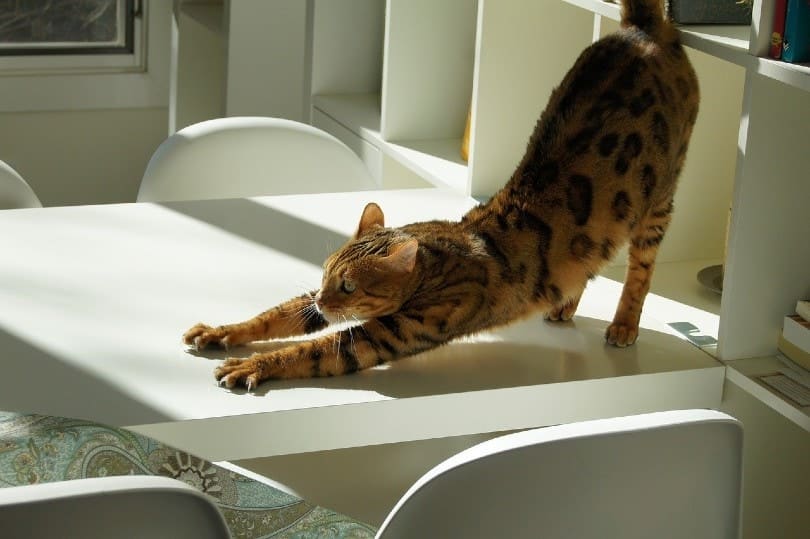
10. They Have an Itchy Spot
It’s also possible that your cat has an itchy spot that you’re unknowingly scratching. This could be caused by a number of things, such as fleas, allergies, or a skin infection. If you think your cat may have an itchy spot, it’s best to take them to the vet to get checked out. They can provide you with medication or other treatment options to help relieve your kitty’s itchiness. Persistent scratching or sensitivity in this area should always be evaluated by a vet to rule out parasites, dermatitis, or pain.

FAQ
What is the tail-up response?
The tail-up response is a behavior that cats often exhibit during friendly interactions with other cats. It is part of their body language and serves as a signal of trust, friendliness, and approachability. When a cat raises their tail upright, often with a slight curve at the tip, it indicates that they feel relaxed and sociable, whether interacting with humans or other animals. It is one of the most reliable signs of positive social intent in cats.
What should I do if my cat exhibits the tail-up response?
If your cat exhibits the tail-up response, there is no need to be alarmed. In most cases, it is simply a harmless behavior that your cat enjoys. However, if you notice that your cat is exhibiting other signs of distress along with the tail-up response, it’s best to look for additional cues such as tail puffing, growling, or hissing to differentiate fear from friendliness.
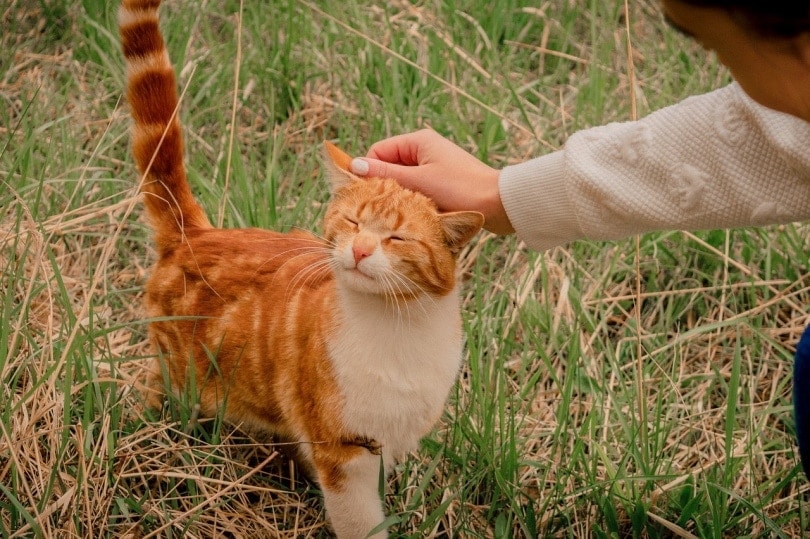
What should I not do if my cat exhibits the tail-up response?
There’s no need to worry if your cat exhibits the tail-up response—it’s a positive sign of friendliness and comfort. However, to ensure they remain relaxed, avoid overstimulating them by scratching excessively. If your cat shows signs of irritation, such as twitching their tail, swatting, or moving away, it’s best to stop interacting and give them space. Respecting your cat’s boundaries helps build trust and reduces stress.
What other cat body language should I look out for?
In addition to the tail-up response, there are a few other common cat body language cues that you should be aware of, including:
- Ears flattened against the head: This usually indicates that the cat is feeling threatened or defensive.
- Tail held high: This is often a sign of confidence or happiness.
- Tail held low: This usually indicates that the cat is feeling scared or submissive.
- Slow blink: This is often a sign of affection.
- Purring: This usually indicates that the cat is content and happy.
What do I do if I’m not sure what my cat’s body language is telling me?
If you’re unsure of what your cat’s body language is trying to tell you, the best thing to do is observe their behavior and see if any other cues can help you interpret their meaning. If you’re still unsure, it’s best to consult with a veterinarian or animal behaviorist for more guidance.

Conclusion
The scenarios in this article represent what is most likely going on, but nobody knows your cat better than you! If your cat is acting weird when you scratch the base of their tail, take a step back and observe their behavior. If they seem happy and content, then there’s no need to worry. However, if you notice other signs of distress, it’s best to take them to the vet to rule out any medical reasons for their behavior. The peace of mind alone is worth it, not to mention the health of your cat, of course.
All cats have their own personalities, so it’s hard to pin down one exact cause for their behavior. There are a few different reasons why your cat may act weird when you scratch the base of their tail. It could be because they’re ticklish, trying to tell you something, or simply enjoying the sensation. So, if your cat starts acting weird when you scratch the base of their tail, don’t be alarmed. It’s likely nothing serious.
Just pay attention to their body language and see if you can figure out what they’re trying to tell you. If your cat seems hurt or stressed, have a vet check them out. Otherwise, happy bonding!
Featured Image Credit: Zhuravlev, Andrey, Shutterstock



